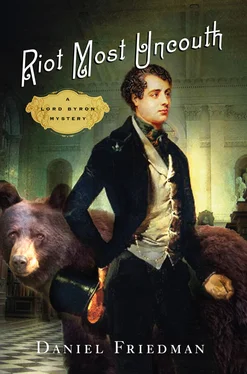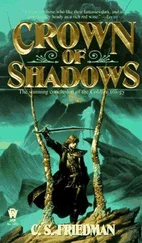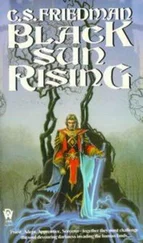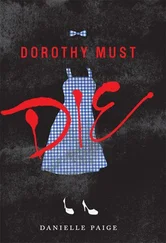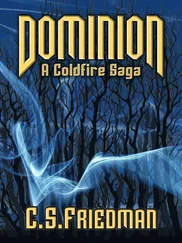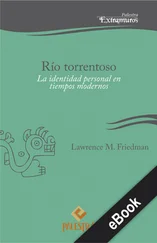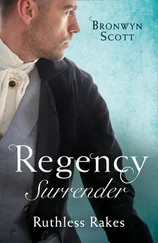Daniel Friedman - Riot Most Uncouth
Здесь есть возможность читать онлайн «Daniel Friedman - Riot Most Uncouth» весь текст электронной книги совершенно бесплатно (целиком полную версию без сокращений). В некоторых случаях можно слушать аудио, скачать через торрент в формате fb2 и присутствует краткое содержание. Год выпуска: 0101, ISBN: 0101, Издательство: St. Martin, Жанр: Исторический детектив, на английском языке. Описание произведения, (предисловие) а так же отзывы посетителей доступны на портале библиотеки ЛибКат.
- Название:Riot Most Uncouth
- Автор:
- Издательство:St. Martin
- Жанр:
- Год:0101
- ISBN:9781250027580
- Рейтинг книги:5 / 5. Голосов: 1
-
Избранное:Добавить в избранное
- Отзывы:
-
Ваша оценка:
- 100
- 1
- 2
- 3
- 4
- 5
Riot Most Uncouth: краткое содержание, описание и аннотация
Предлагаем к чтению аннотацию, описание, краткое содержание или предисловие (зависит от того, что написал сам автор книги «Riot Most Uncouth»). Если вы не нашли необходимую информацию о книге — напишите в комментариях, мы постараемся отыскать её.
Riot Most Uncouth — читать онлайн бесплатно полную книгу (весь текст) целиком
Ниже представлен текст книги, разбитый по страницам. Система сохранения места последней прочитанной страницы, позволяет с удобством читать онлайн бесплатно книгу «Riot Most Uncouth», без необходимости каждый раз заново искать на чём Вы остановились. Поставьте закладку, и сможете в любой момент перейти на страницу, на которой закончили чтение.
Интервал:
Закладка:
“Please, Lord Byron, you must let me speak.” Her tone was insistent, but her voice was so soft, it was barely audible. “Last week Mr. Sedgewyck visited my father and asked for my hand. My father gave his blessing. Mr. Sedgewyck is known to be well situated, and this match may ensure the future fortunes of my family. He intends to propose.”
“So, when he wandered into my home, uninvited, to insult me, he did so at your behest?”
“It was nothing so unkind as that. I think he was intimidated when he learned I was attending your party, and maybe he was trying to impress me.”
“He came into my home at your behest and insulted me in front of my friends. I was humiliated.” And then I realized something: “He asked your father for his blessing last week? Before the murder of Felicity Whippleby?”
“Yes. I don’t see what the one thing has to do with the other.”
“How long has Sedgewyck been courting you?”
“Several months.”
“While he was purportedly betrothed to Felicity?”
I’d assumed Sedgewyck was merely a bachelor on the hunt for a smart match, and that his pursuit of Olivia had been his pragmatic contingency when the possibility of union with Felicity was extinguished. The fact that Sedgewyck had made secret plans to marry Olivia when Felicity was still ostensibly his intended bride changed my entire perspective on the events of the previous two days, as did the fact that Sedgewyck had apparently concealed his simultaneous courtship of two respectable young ladies from me and from the investigators.
“His engagement to Felicity was, as you said, merely a pragmatic arrangement,” Olivia said. “It is not unusual to break off an engagement when an opportunity arises to make a smarter match.”
“Why didn’t he end things with her sooner, then?”
“His parents were infatuated with the idea of marrying into her good, old family. He was loath to disappoint them.”
“So he found a way to get rid of her that didn’t require him to spurn the bride his father had chosen for him.”
“Leif didn’t-he would never.”
“Killing her was a prudent thing to do, and Leif Sedgewyck is ever so prudent,” I said. “And you’ve chosen his prudence over my passion. The life he offers you is as cold and bloodless as the corpse of the last girl he was supposed to marry. You will never know what we could have had together.”
She collapsed onto the bed and began to weep. “On some level, I may resent Mr. Sedgewyck and my father for making this arrangement,” she said. “You’re right that I don’t love him, and you’re right that he isn’t passionate. I think that you have sensed within me some unspoken desire to undo the match, to wreck what’s been built, and your insect heart can smell a flower ripe for plucking. Or perhaps I’ve committed some seductive act to draw you in; I cannot absolve myself of all blame. But I must stop before I embark upon your spectacular folly. I cannot forsake my duty to my family’s interests merely to slake my own desire; not for something so fleeting as your limited promises of temporary passion.”
If I consider it in retrospect, I must admit that this new information didn’t connect Sedgewyck to Cyrus Pendleton or Violet Tower, and it didn’t explain how he could have attended my party, walked Olivia to her doorstep, and still had time to commit all the murders of the previous night. But I was full of fury at the discovery of the Dutchman’s duplicity.
Olivia, for her part, seemed to find nothing suspicious about her suitor’s strategic maneuvers. In the world where she traveled, one’s entire purpose was to pursue the optimal marriage. But she had deceived me nonetheless, and I wasn’t about to do her any favors.
“That’s fine,” I said to her. “I don’t really care. I’m moving on already, toward another carnal impulse.”
“What impulse?”
“I want to beat Leif Sedgewyck until he shits blood, and it’s a desire I’ve got every intention of indulging.”
Chapter 26
First, I can hit with a pistol the keyhole of that door. Secondly, I can swim across that river to yonder point, and thirdly, I can give you a damned good thrashing.
- Lord Byron, insulting John PolidoriInsulting a man is a lot like seducing a woman. Both arts share similar linguistic structures and are, at their essence, tests of one’s cleverness. The same kind of insight helps one spot a man’s pride and a woman’s longing. I’m good at insults. I can gently mock my friends, sting my rivals, and devastate my enemies. But there comes a point in any seduction when charm has run its course, and circumstances demand action. Insults, too, exhaust their function.
One of the first things you learn at Harrow is that one must never talk when one should be punching somebody. Past that barely perceptible threshold, language, no matter how quick or facile or magnificent one’s tongue may be, is no longer appropriate. A man’s skill at talking his way around violence is a good measure of his wits, but so is his ability to recognize the point when talking is of no further use. When diplomacy fails irreversibly, one must make a preemptive strike. Linger too long taunting or bargaining or cajoling, and you’ll catch a mouthful of knuckles.
You don’t give a warning. You don’t make a threat. You don’t tell a man you’re about to hit him. He’ll figure it out when his vision goes white and his brains slosh against the back of his skull and his nose smashes like a beam of rotten timber. You talk about fighting only to women. They tend to dampen their petticoats when somebody handsome regales them with tales of violent exploits. Among men, however, violence is its own vernacular, and it delivers its own messages.
So, when I found Leif Sedgewyck nursing a pint in the Modest Proposal, and I punched him in the side of the head, it meant: “I’ve learned of your schemes and depredations, and will have you punished for your sins, you blackguard.” He twisted around and fell off his stool, which I took as a confirmation that my point was well received.
Another thing most boys learn quickly at Harrow is that one shouldn’t wait for a response or a conversation after punching somebody. The ideal fight is more of a monologue than an exchange. While it may seem polite to wait for one’s opponent to take his turn after drawing first blood, to do so is folly and, moreover, bad for one’s complexion.
So, I let Sedgewyck get only halfway to his feet before I punched him again, full in the face. His head snapped backwards, and the rest of him followed it to the floor. I kicked him in the mouth, with my weak foot. It hurt, but I enjoyed the irony. I kicked him with it again and he gasped and spat blood.
“You rotten sod,” I said. “These boots must be specially ordered, and now you’ve stained them with your putrid juices.”
“Byron,” he said.
“It is I. I came here all by myself, navigating the cobbled streets with surprising agility, considering my lameness.” As a sort of punctuation, I aimed the toe of my boot at his belly and kicked him again. I think the sound he made was supposed to be a scream, but it was more like a rattling gasp.
I looked around the barroom. The place was emptier than usual; nighttime activity had slowed because of the murders, and people were avoiding the Modest Proposal specifically, because Professor Fat Cheeks had met his end there. Nonetheless, six or seven drinkers were present in the bar, as well as the barkeep, a delightful fellow named Richards. He had a fine case of Calvados in his cellar, which he’d acquired before the war with France, and he kept a bottle of it under the bar, even though nobody but me ever asked for it.
Читать дальшеИнтервал:
Закладка:
Похожие книги на «Riot Most Uncouth»
Представляем Вашему вниманию похожие книги на «Riot Most Uncouth» списком для выбора. Мы отобрали схожую по названию и смыслу литературу в надежде предоставить читателям больше вариантов отыскать новые, интересные, ещё непрочитанные произведения.
Обсуждение, отзывы о книге «Riot Most Uncouth» и просто собственные мнения читателей. Оставьте ваши комментарии, напишите, что Вы думаете о произведении, его смысле или главных героях. Укажите что конкретно понравилось, а что нет, и почему Вы так считаете.
